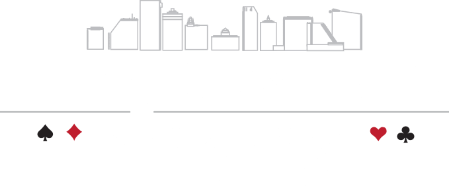Four decades ago, casino gaming was billed as an economic engine that would redevelop the resort.
While casino gaming failed to create small businesses in the city, it spawned an economy that sees casinos spend an average of $2.3 billion annually with more than 2,000 independent vendors operating in every county in the state.
Casino operators use a slew of outside firms to provide services to their customers, including transportation companies, meat and produce purveyors, bakeries, beverage distributors, radio stations, professional consultants and construction contractors, according to the Casino Association of New Jersey.
For the past 30, years Greg Goff, owner of Casino Lobster in Pleasantville, has been one of the people who has taken advantage of the business coming from the casino industry. The seafood business, located in a warehouse on West Merion Avenue, has only one type of customer: casinos.
“All of our business is tied to casinos,” Goff said. “They call, and we deliver.”
Goff’s business is one of the more than 15,500 that are registered with the state Division of Gaming Enforcement to do business with the casino industry.
The boom in small businesses that serve the casino industry is in towns like Egg Harbor Township and Pleasantville, said Michael Busler, professor of finance at Stockton University.
“Most casinos, primarily because of cost and perhaps safety issues, have located their distribution and storage facilities offshore,” Busler said. “As a result, the local spillover direct effect has been somewhat minimized. That being said, there was a large indirect effect.”
The businesses range from mom-and-pop type shops to national wholesalers. Casino spending extends throughout the state, with $215 million spent with Middlesex County businesses, $75 million with Essex County businesses and $42 million with Bergen County businesses.
“There has been a positive overall effect on small business from the casino industry, although casinos could have done more to promote the use of local businesses,” Busler said. “They apparently felt there were no specific requirements, and they saw little direct benefit to them. Perhaps the law could have been more favorable to locals.”
Nationally, the casino industry generates more than $52 billion a year for small businesses, according to a report by the American Gaming Association.
According to the report, the casino gaming industry is driving small business growth across the country by supporting 350,000 small-business jobs — more than 14 times the number of air traffic controllers in America, twice the number of dentists and larger than the entire freight-rail industry.
“The casino industry has had a powerful impact on small-business development through various means, ranging from its purchases of goods and services to its impact on increasing employment and visitation in multiple markets,” said Michael Pollock, managing director of Spectrum Gaming Group.
But relying on the casino industry for business can be difficult. Over the past decade, the casino industry has lost half of its revenue. Since 2014, five casinos in the resort have closed.
During the height of the casino industry, Goff recalled, each casino-hotel bought at least 1,000 pounds of lobster per week. Now, some are down to 100 pounds, while others have stopped buying it.
“It was nothing for them to get 3-pound lobsters for everybody in their party,” Goff said. “People are eating at the cheap buffets, there aren’t so many comps and the lobster business isn’t as good as it used to be.”
That loss of revenue and properties has impacted small businesses, including Goff’s.
“At our height we were doing $18 million a year from the casinos; now we are down to $8 million a year,” he said.
